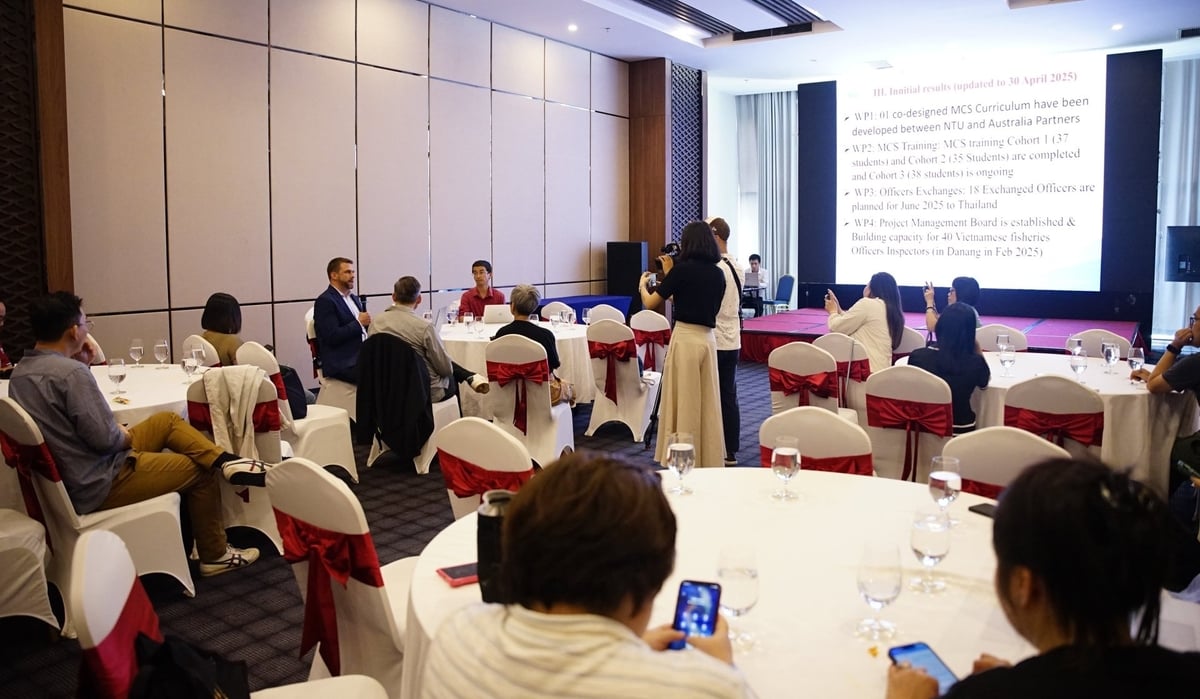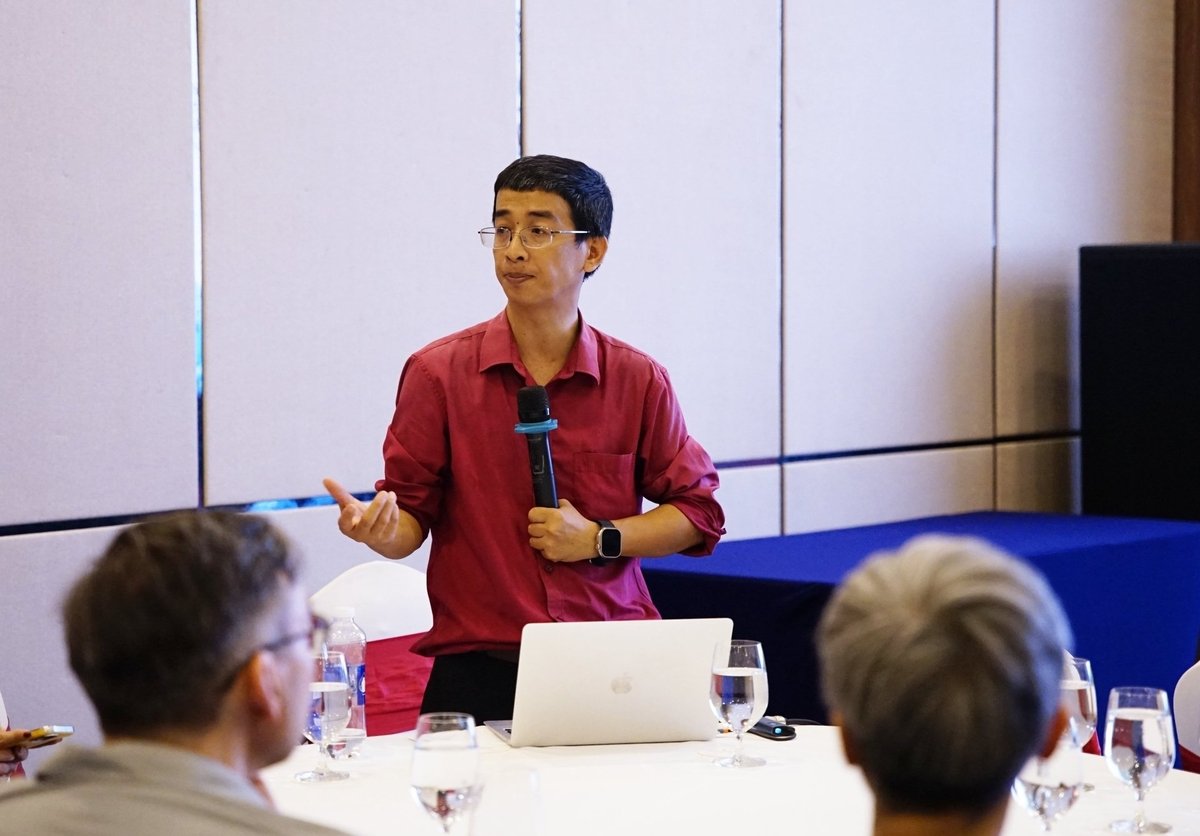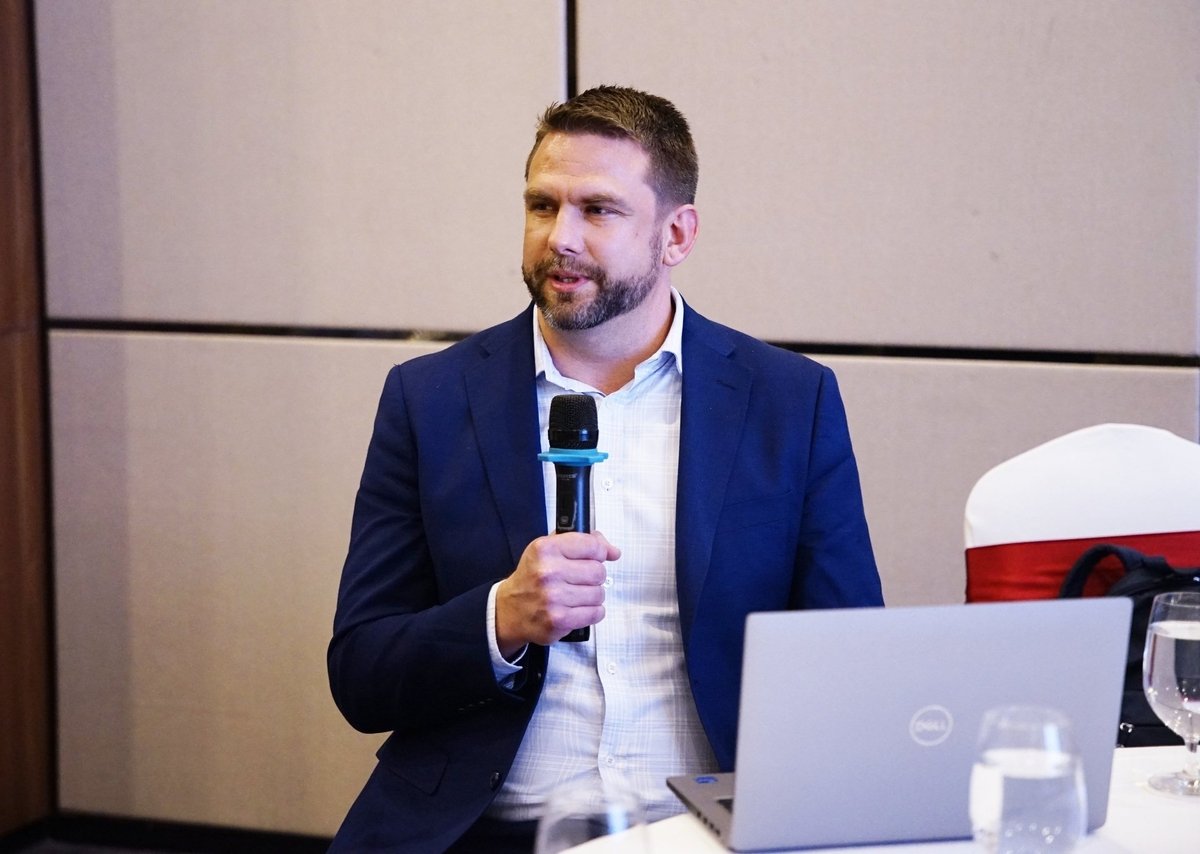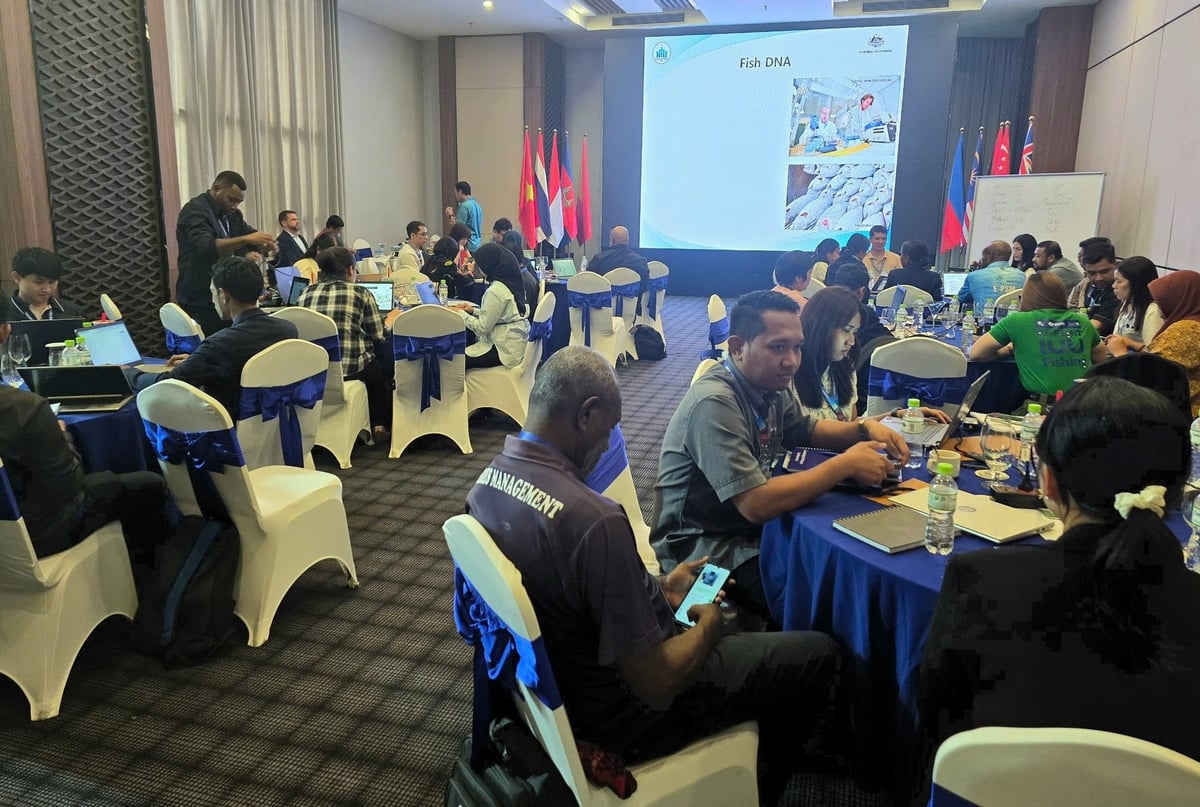December 5, 2025 | 20:18 GMT +7
December 5, 2025 | 20:18 GMT +7
Hotline: 0913.378.918
December 5, 2025 | 20:18 GMT +7
Hotline: 0913.378.918

Briefing journalists on the training course before connecting them with the trainees. Photo: Linh Linh.
On May 6, in Nha Trang, the Monitoring, Control, and Surveillance (MCS) Training Course for Fisheries in Southeast Asia officially marked its third year of implementation. The course is part of a broader five-year regional program funded by the Australian Government through the Department of Agriculture, Fisheries and Forestry. Its primary goal is to strengthen fisheries governance and build the capacity of fisheries management officers in combating illegal, unreported, and unregulated (IUU) fishing.
The event brought together participants from diverse regions, facilitating the exchange of valuable insights, shared knowledge, and meaningful professional connections.
According to Mr. Tran Van Hao from the Institute of Science and Technology for Fisheries Exploitation at Nha Trang University, the program is closely aligned with the ASEAN Regional Plan of Action for the Management of Fishing Capacity (RPOA-Capacity). It supports countries in developing action plans, delivering technical training, and facilitating cross-border cooperation. A short-term MCS curriculum was launched in 2022 in collaboration with Australian technical experts and has since evolved into a multi-phase initiative. Between 2022 and 2025, three intensive training cycles—each consisting of two sessions per year—have focused on real-world surveillance practices across Southeast Asia.

Mr. Tran Van Hao from the Institute of Science and Technology for Fisheries Exploitation at Nha Trang University introducing the training course. Photo: Linh Linh.
The program expects to train around 120 fisheries officers from ASEAN countries, Timor-Leste, and Papua New Guinea by its conclusion. A regional officer exchange component, beginning in June 2025, will enable 30 officers annually to participate in peer-learning visits. For instance, Vietnamese officers may study Thailand’s strategies for lifting the European Commission’s “yellow card” warning. The current course, taking place in May and October 2025, is projected to train another 40 officers, continuing the momentum built by previous sessions, including one held in December 2024 with 35 participants. In parallel, Vietnam’s Directorate of Fisheries has organized additional training, such as a February 2025 session for 40 senior officials in Da Nang.
Speaking at the event, Mr. David Power, Senior Manager at the Australian Fisheries Management Authority (AFMA), emphasized the authority’s dual role as both a national regulator and a contributor in international capacity-building. He noted that the MCS course is a central component of AFMA’s engagement in Southeast Asia, implemented under the Regional Plan of Action framework to Promote Responsible Fishing Practices including Combating IUU Fishing (RPOA-IUU).

Mr. David Power, Senior Manager at the Australian Fisheries Management Authority (AFMA). Photo: Linh Linh.
“This is the third year we’ve run the course, and we’ve already trained approximately 80 participants with 40 more expected this year,” Mr. Power said, adding that the initiative was recently extended until June 2027 following positive reviews and participant feedback.
He also praised the close partnership with Nha Trang University, whose faculty and researchers have played a critical role in designing and delivering the training content. The course not only enhances technical skills and regulatory knowledge but also fosters professional networks among fisheries officers from countries such as Vietnam, Thailand, Malaysia, and Indonesia. “One of the most valuable achievements of this program is strengthening regional cooperation,” Power remarked. While the course does not aim to formalize new institutional networks, it complements the efforts of RPOA-IUU. It facilitates informal connections that enhance collaboration and information exchange at the practitioner level.

The program expects to train around 120 fisheries officers from ASEAN countries, Timor-Leste, and Papua New Guinea by its conclusion. Photo: Linh Linh.
Beyond technical training, the program also addresses the need to balance effective enforcement with the livelihoods of coastal fishing communities. By equipping officers with updated tools and contextual knowledge, the course helps ensure responsible fishing practices without compromising socioeconomic stability. After completing the training, officers—primarily national-level managers—apply their knowledge at critical control points such as designated ports for seafood exports or foreign vessel landings. In Vietnam, central-level inspectors monitor large ports, while provincial inspectors oversee local operations according to lists published by the Directorate of Fisheries.
Ultimately, the MCS course in Southeast Asia is more than a training effort-it is an investment in long-term regional resilience, transparency, and sustainability in fisheries management. As countries move toward unified standards and shared commitments to ocean stewardship, initiatives like this serve as a vital foundation for regional solidarity and collective action against IUU fishing.
This effective partnership highlights the collective dedication of all parties involved to advancing sustainable fisheries and enhancing regional collaboration. Through ongoing commitment, these efforts are poised to deliver long-term impacts in the fight against IUU fishing and in promoting the responsible management of marine resources.

(VAN) As of 2025, the ASEAN region has a total of 69 ASEAN Heritage Parks recognized across its 10 member states. Among them, Viet Nam contributes 15 ASEAN Heritage Parks.

(VAN) Yok Don National Park has high biodiversity with numerous endemic plant and animal species, and it is also the only dipterocarp forest ecosystem conservation area in Viet Nam.

(VAN) Viet Nam and Brunei signed two important MOUs on fisheries and IUU, expanding cooperation in agriculture, the environment, and Halal exports, aiming to substantively implement joint projects.

(VAN) The Viet Nam Coconut Association worked with the International Finance Corporation (IFC) and businesses to promote the supply chain, enhance competitiveness, and develop the coconut industry sustainably.
![Hue aims for Net Zero: [2] Pioneering low-emission tourism](https://t.ex-cdn.com/nongnghiepmoitruong.vn/608w/files/huytd/2025/12/04/0633-dulichzero-4-095634_236-161125.jpg)
(VAN) The ancient capital of Hue has developed Net Zero tourism products and models, aiming to reduce carbon emissions and pioneer the establishment of Viet Nam's green tourism destination.

(VAN) C.P. Viet Nam has announced the successful completion of its goal to plant 1.5 million trees during the 2021-2025 period, a key milestone within company's long-term ESG strategy and its roadmap for emission reduction.

(VAN) This is an initiative of MAE aimed at creating a unified coordination mechanism to implement agricultural cooperation programs with developing countries.